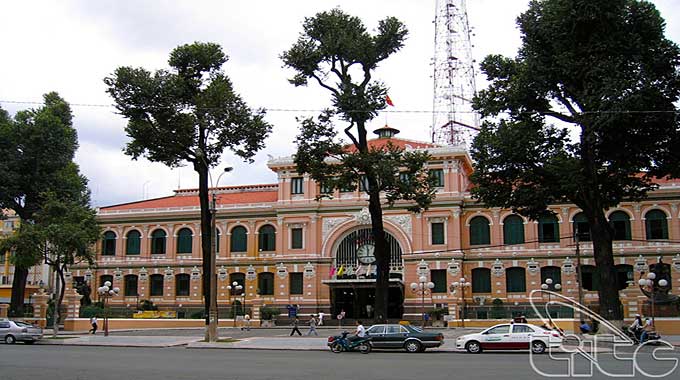Google and Singaporean sovereign fund Temasek have forecast the Vietnamese online tourism services market to be worth 9 billion USD by 2020, and said local companies should work quickly or risk losing the market to international companies.

“Viet Nam now has 47.7 million internet users,” Trinh Quang Chung, industry manager of Google Asia Pacific, told Thoi bao Kinh doanh (Business Times) newspaper.
“Forty eight percent of tourists use their smart phones for booking rooms and 42 percent for searching tourism information.”
The country’s online tourism services are dominated by international online travel agents (OTAs) like Agoda.com, Booking.com, Traveloka.com, and Trivago.com.
Of the many services available online, air ticket and room booking would account for 85 percent of turnover by 2020, according to the forecast.
But now room booking is the most attractive and competitive segment, and Agoda.com and Booking.com are the strongest in it with 7,600 and 6,000 partner hotels.
According to the Viet Nam Electronic Commerce Association, the market share of online room booking has increased sharply in recent years to 30 - 40 percent of total bookings.
OTAs accounted for 15 - 20 percent of the total room booking turnover of 60 trillion VND (2.63 billion USD) last year, with Agoda’s share being 4 trillion VND.
Leading international OTAs, with their deep pockets, can book a huge number of rooms in good locations and with quality services for a full year to prepare for the peak season.
They also spend a lot of money on media and promotion campaigns, and have a huge number of loyal customers because they offer good prices, discounts and ease of payment.
“International tourists look for reputation, and Agoda and Booking have an advantage over their local competitors,” Nguyen My Ngoc Chan, service manager at Alagon Hotel&Spa, said.
Hoang Thu Thuy of Cau Giay, Ha Noi, said: “In the past I often booked rooms through Vietnamese websites, but I have started to use Traveloka.com because of good prices and ease of payment.”
To cope with the competition from their international rivals, domestic OTAs like Tugo.com.vn, Vntrip.vn, chudu24, iVivu, Gotadi, Triip.me, and Tripi have increased their investment and tie-ups with other service providers and upgraded their services to gain market share.
Vntrip.vn has received 3 million USD from two investment funds, Fenghe Group and Hancock Revocable. Tugo.com.vn achieved a turnover of 5 million USD last year and hopes to serve 100,000 customers this year.
Domestic OTAs may not be able to match their foreign rivals in resources or experience, but have the advantage of understanding local customers’ needs and having good relations with service providers like hotels and guesthouses.
“Domestic OTAs could take advantage of the country’s 90 million population to grow,” Nguyen Minh Bao, co-founder of Tugo.com.vn, said.
But to take dominate the market, Vietnamese enterprises need to fix their technological shortcomings.
“Most Vietnamese websites do not meet the needs of customers,” Ha Lam Tu Quynh, public relations manager of Google Asia Pacific, said.
“Most people exit a website if they have to wait over three seconds, but Vietnamese tourism websites take 8 - 10 seconds.
“A good mobile website’s version must meet the requirements of high speed and ease of use.”
Chung agreed, saying: “In the digital era, tourism companies which don’t have a mobile version of their website or a slow mobile version will lose their opportunities to competitors.
“A good mobile version will help them find customers around the world at low cost.”
In 2016 Vietnamese tourism operators served 10 million foreigners, an increase of 25 percent from the previous year.
The hotel industry’s turnover topped a record 15 billion USD and the tourism industry accounted for 6.6 percent of GDP.
This year the industry targets a 10 percent share.